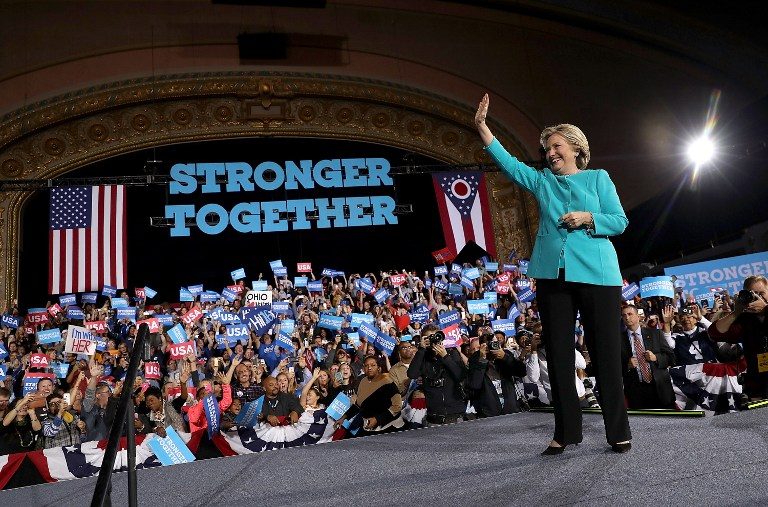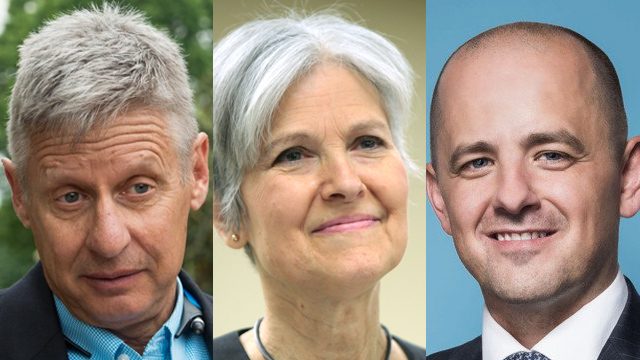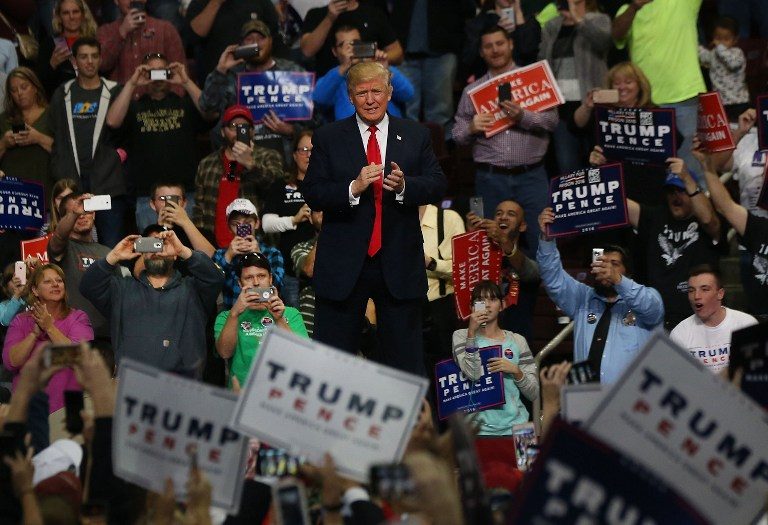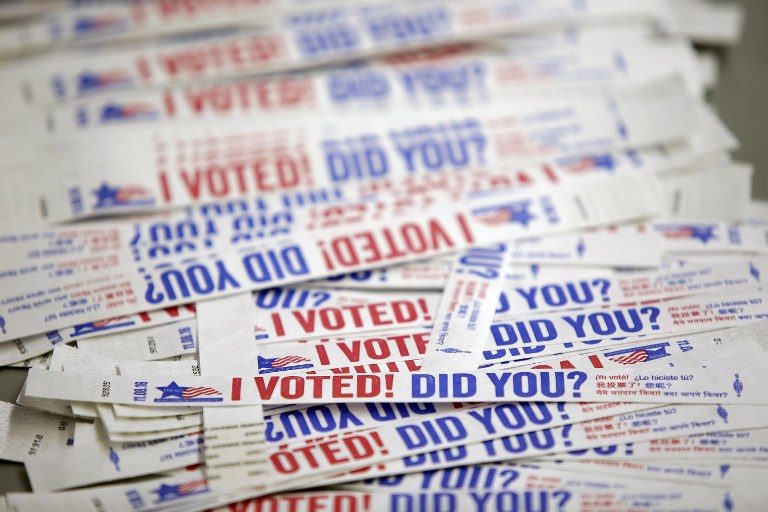SUMMARY
This is AI generated summarization, which may have errors. For context, always refer to the full article.

MANILA, Philippines – Millions of Americans are set to make a historic decision that will reverberate across the world: who will be the next President of the United States of America?
A brutal, divisive and at times tawdry election campaign that began nearly two years ago ends on Tuesday night, November 8, with 82% of Americans saying they are sick of it in a country polarized like it has never been before.
Millions of voters, from Maine in the northeast to Hawaii in the west, are eligible to cast their votes; US census data has put this year’s electorate at 225.8 million. Ahead of election day itself, more than 21 million have already cast their ballots in states that allow early voting.
Pew Research said that this 2016 election’s electorate is the most diverse in years, with one in 3 voters coming from minority groups – African Americans, Asian Americans, and Latinos. (READ: Voter turnout ‘explodes’ among blacks, Hispanics in US)
Voters choose among the candidates for president and vice president. The popular vote in each state determines the selection of a set of members of the electoral college, which pledge to support a given candidate.
There are 538 members of the electoral college, with the number from each state based on its population size. The successful candidate must amass 270 electoral votes, an absolute majority of electors.
The winner-takes-all system in the states makes it extremely hard for a third-party candidate to prevail, although they can still have critical impacts on certain states and therefore on the national result.
The candidates
Leading the pack are the Democratic and Republican nominees – Hillary Clinton and Donald Trump – who are in a very tight race for the White House.
Clinton, the former secretary of state, senator, and first lady, is now on the cusp of shattering America’s highest, hardest glass ceiling, using a message of unity and openness to rally her troops.
Trump, businessman and reality television star, has never been into politics before, but has eliminated more experienced, and some say more suitable, bets for the presidency with his brash, sensationalist campaign style.

There are a number of other candidates also in the race, in particular former New Mexico governor Gary Johnson, physician Jill Stein, and former CIA officer Evan McMullin – but polls are showing that they have little chance of breaching the magic 270 electoral votes. (READ: Johnson, Stein, McMullin: The other White House hopefuls)
Americans will also be voting for every one of the 435 members of the House of Representatives (who serve two-year terms) and for 34 of the 100 senators (who serve for six years). They also will be choosing governors in 12 states, and will be casting votes in a multitude of referenda and local elections.
Economy, security
There’s a slew of major issues the next leader will have to address, locally and abroad. (READ: The United States: Vital statistics)
Within the US, there’s the issue of a slowing economy and increasingly hard-to-find jobs; the widening rich-poor gap; taxes issues; race relations, guns, and law and order; immigration; healthcare; and the concentration of power in Washington.
Outside its 50 states, the winner will have to face increasing threats to security; the ongoing refugee crisis; stalled trade deals; climate change; several ongoing crises, including Syria, Yemen, Iraq, and Afghanistan; and potential crises, like the brewing tensions in Asia surrounding territorial disputes.
The next leader’s plate will also include issues with America’s oldest and most reliable Asian ally, the Philippines, which is now appearing to make its own “pivot” away from the US, under the administration of President Rodrigo Duterte. (READ: Duterte announces military, economic split from US)
Slugfest

But despite the slew of issues, the campaign has been markedly been more of a slugfest, with both sides engaging more in gutter talk than explaining their vision for America.
Throughout the campaign Trump has made controversial comments against a slew of people and groups, from Mexican immigrants (“rapists”) to a former beauty queen (“Miss Piggy”) and of course, his opponent (“Crooked Hillary”). But the biggest controversies he had to face were about his payment (or not) of taxes, and the revelation of a 2005 video in which he is heard talking about sexually assaulting women.
But “The Donald” shrugged them all off, chalking them all up to a conspiracy against him, led by the liberals and what he called “biased” media.
Clinton, meanwhile, tried to take the high road by invoking themes such as unity, diversity, and openness, but the mud did not miss her at all. Her baggage from her decades in the political arena has been mercilessly thrown back at her by her opponents: from her vote for the Iraq war, to the Benghazi debacle, to her emails.
Even the issues about her husband, former president Bill Clinton, were not spared, and were used against her.
Uncertainty

Even with less than 24 hours to go before the first election-day ballots are cast, there is still a lot of uncertainty.
Clinton’s popularity had dipped after FBI Director James Comey dropped a campaign bombshell with a reopened inquiry into her emails.
Opinion polls had tightened as Trump began to recover ground lost while battling accusations of sexual assault, and the race looked headed for a photo finish.
If Clinton wins, she will seek to build on Obama’s cautious but progressive legacy, including his controversial health insurance reforms.
Trump has vowed to tear up the reform along with free trade agreements, to rebuild a “depleted” US military, and review US alliances. (READ: Win or lose, ‘Trumpism’ will leave its mark)
The latest polls give Clinton a narrow national lead of between 3 and 5 percentage points, but rolling averages point to a closer race, with Trump up in some swing states. – KD Suarez, with reports from Agence France-Presse/Rappler.com
Add a comment
How does this make you feel?
There are no comments yet. Add your comment to start the conversation.